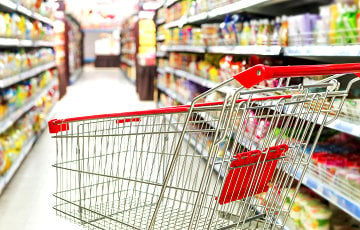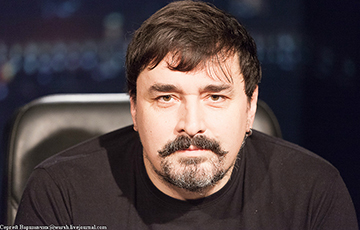Lukashenko Ramped Up Inflation
3- 11.07.2025, 14:48
- 4,194

Products in Belarus not only disappear, but also become more expensive at an obscene rate.
Food inflation in June was more than twice as high as the official forecasts. It's no wonder that the Belarusian authorities suddenly made such a fuss over rising prices. The real potential of Belarusian inflation is much higher than its current values, writes planbmedia.
Food prices rose by 10.5% in annual terms in June. The restraint of prices for non-food products did not help to bring inflation in June back within the limits allotted to it by the official forecast.
On July 1, prices in annual terms have already increased by 7.3 percent. Inflation has been accelerating every month since the beginning of the year. In May it was 7.1 percent, and in April it was 6.5 percent. While according to the official forecast it should be no more than five.
It turns out that in June the authorities were so fussy about price growth that they even partially canceled their own partial price liberalization. Regulation of prices for meat and dairy products and sweets returned in the second half of the month. And even in a stricter version than the one that existed before the partial abolition of price regulation.
But neither these measures nor statements about price stabilization helped. At least not yet. Food inflation in June was even higher than in May. In June, food prices rose by 1.7 percent after the growth of 1.3 percent in May.
But perhaps the return of price control helped to avoid an even worse scenario. BEROC expert Anatoli Kharitonchik pointed out that at the end of June, the National Statistics Committee published a revised estimate of GDP for the first quarter. As a result of the reassessment, the GDP deflator has doubled, from 6.4% to 11.8%.
In contrast to the consumer price index, which characterizes, in fact, consumer inflation, the GDP deflator fixes the price growth in the economy as a whole, including the consumption of government agencies, foreign trade operations and investments. That is, already in the first quarter the growth of prices in the economy has twice overtaken consumer inflation.
Therefore, it turns out that inflation in Belarus has the potential for double-digit growth. Without strict price regulation, it could have been above ten percent already at the end of the first quarter.
Not surprisingly, the authorities got scared and quickly turned back with their price liberalization. The inflationary overhang turned out to be actually greater than the most pessimistic estimates.
But the authorities did not agree to partial price liberalization from a good life. And the reasons why they did it have not disappeared. On the contrary, as the sudden shortage of potatoes showed, they became even more weighty. So the authorities are faced with a difficult choice. Do they want food prices to be low, or do they want food to go nowhere.











